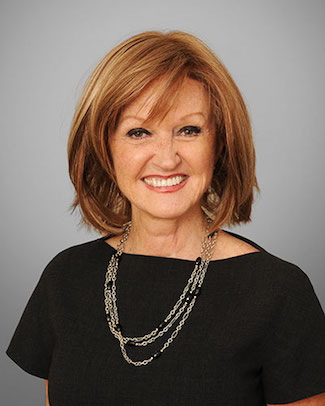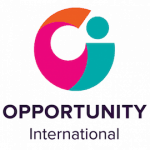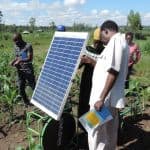Opportunity International and MyBucks: ‘A Powerful Partnership to Improve More Lives’
Editor’s note: The sale of microfinance institutions to fintech companies has broad potential repercussions for both clients and the microfinance sector’s overall development. Because opinions differ on whether this impact will be positive or negative, NextBillion is running multiple, comprehensive posts on the topic. The post below was written by Opportunity International Global CEO Vicki Escarra, in response to a recent post by former MFTransparency CEO Chuck Waterfield that provided a critical take on Opportunity’s sale of six microfinance banks to the fintech company MyBucks. Another post, written by Daniel Rozas and Gabriela Erice García at the European Microfinance Platform, presents their independent analysis of the sale and its ramifications, and was reviewed by Opportunity International and MyBucks prior to publication. Escarra previously discussed some of these issues in this NextBillion interview.
We’ve learned in the 45 years since Opportunity International was founded that poverty is multidimensional, caused by a myriad of complex factors. That is what makes it so tough to tackle, and why we continually challenge our strategies and thinking to create new and better solutions that transform lives.
Based on a recent post on NextBillion, it’s clear that not everyone agrees with our innovative thinking and approach to improving lives.
When Opportunity began working in Africa, there were virtually no banks that served people living in poverty. Over the years, our eight banks/MFIs in Africa have provided critical financial services to empower people living in poverty to transform their lives, their children’s futures and their communities.
Our efforts have not been limited to Opportunity-owned and operated institutions. Since 1971, we have been creative in how we reach the poor, consistently bringing in new partners and capital to help achieve our mission.
One of the most successful examples was Opportunity’s 2002 launch of the world’s first microinsurance company, MicroEnsure, to provide a financial safety net for families. To scale growth and success, we brought in other investors that enabled MicroEnsure to expand very quickly and serve millions more. What we are now doing with MyBucks, a fintech company in Africa, is very similar, trusting that with another new partner we can provide greater service to our clients.
Partnering for Future Success
Opportunity entered into a share purchase agreement with MyBucks, and will retain a minority interest in MyBucks’ holding company. We selected MyBucks from 12 potential buyers because the company offers cutting-edge digital and mobile banking technology that delivers cost-effective solutions to expand banking services to millions of people in Africa. As important, MyBucks shares our vision of financial inclusion.
While this is a groundbreaking partnership between an international NGO and a fintech company, MyBucks’ for-profit status and past business model has caused outsiders to question whether the partnership will truly help the poor. The answer is yes. Bringing in for-profit partners with advanced technology and resources—who also share our values and mission—can create a powerful new model for transformation.
MyBucks’ initial business model focused on loans to those employed in the developing world, which primarily included government workers. This model allowed MyBucks to create a solid technology platform and infrastructure from which it could grow.
The rates charged by lending institutions are dictated by a combination of their cost of funds, client risk, macro-economic factors, infrastructure and return targets. As it relates to MyBucks and Opportunity, these factors are different. In Malawi, for example, MyBucks funds itself with higher cost debt versus Opportunity Bank Malawi, which benefits from a large deposit base. From an operating cost perspective, however, MyBucks benefits from a lower cost infrastructure than Opportunity Bank Malawi, which has significant brick and mortar and manual processes. Rather than giving MyBucks access to a deposit base of inexpensive savings which it can lend out at high interest, as the post suggests, this partnership will have the opposite effect: It will allow MyBucks to offer lower interest rates to clients by combining the best of both organizations.
A disproportionate amount of attention has been placed on MyBucks’ advertised rates. These illustrations give some people reason to think that MyBucks will make disproportionately higher rate loans to the poor. These conclusions, however, are just not supported by the facts. While MyBucks’ posted rates apply to the highest-risk, shortest-term loans (30-day) available to virtually everyone, rates drop substantially based on trust levels, performance and longer repayment terms.
In Malawi, for example, MyBucks’ actual loans have an average term of 27 months at an average annual interest rate of 88 percent. Factoring in cost of funds and average rates, MyBucks’ net interest margin is about 36 percent compared to 49 percent margin for Opportunity Bank Malawi. These actual rates and terms are much different than those reported on the website.
One can endlessly debate rates, but essentially banks can only charge what the market will bear. This is especially true in highly competitive markets like Malawi.
Given the increasing complexity and cost associated with operating regulated banks, and the significant amount of banking services now offered in Africa, this is the right time for Opportunity International to enter into this type of partnership.
In fact, Innovations for Poverty Action Founder and President Dean Karlan, in a 2014 Stanford Social Innovation Review article discussing the evolving role of nonprofits in financial inclusion, states, “In the three areas of opportunity that I have discussed, the long-term aim of the movement for financial inclusion should be to transfer successful practices to the for-profit sector. The reason is simple: Because of its incentive structure, the for-profit sector is well equipped to implement and sustain such practices on a large scale.” He goes on to say about nonprofit entities, “If they succeed in making financial exclusion a relic of the past—if one day they notice that for-profit firms have again entered their space and competed them out of business—then they will have achieved an essential part of their mission.”
The Benefits
MyBucks’ ability to raise additional capital will allow its banks/MFIs to expand their reach to more people in need, as well as maintain strong capital positions. While some of Opportunity’s banks and MFIs have experienced periods of losses as the result of civil disruption and instability, today all the institutions meet or exceed the required levels of regulatory capital and liquidity, which are better measures of safety and soundness for depositors. Any suggestion to the contrary is not only wrong, but also reckless.
Opportunity will establish new NGOs to deliver a high level of transformational services to clients in the countries where Opportunity and MyBucks operate. Opportunity’s vision has been and continues to be empowering those living in poverty to holistically transform their own lives. We will equip our NGOs with tools and training to support our partners and clients in the field to mobilize that vision. The focus of the NGO staff in the next two years will be:
- developing, deepening and systematizing our client listening methodology to continually improve our understanding of the needs of those living in extreme poverty and how best to respond;
- innovating, piloting and rolling out holistic transformation training tools and delivery methods; and
- reaching those living on less than $1.90 a day in intentional ways, such as group lending, savings-led groups and groups with specific needs such as the disabled or other marginalized people.
To drive additional accountability with our partner, Opportunity will:
- hold one board seat at the parent level;
- hold one board seat at each of the financial institutions; and
- chair the MyBucks Credit Risk Committee, which approves all products and pricing strategies.
Finally, at the core of our partnership is a licensing agreement to ensure that the poor are being treated appropriately. MyBucks commits to:
- achieving SMART certification for each of the banks—a stringent process that not only reviews the appropriateness of interest rates within the local market, but also ensures transparency, controls to avoid over-indebtedness, and ethical practices;
- maintaining a minimum percentage of their portfolio to serve the poor; and
- participating in social performance management activities that have long been used by Opportunity to ensure that banks are meeting clients’ needs.
There has been significant work to date in preparation of closing the transaction. With the central bank approval of Mozambique completed, the majority ownership of Mozambique, Kenya and Tanzania will transfer by June 30, 2016. Focus will then shift to the remaining entities.
The past is never a perfect predictor of the future and success is never guaranteed. While there are cultural differences between our two organizations, we are aligned where it matters most. Failure is simply not an option because there are too many lives at stake. Success does, however, require careful planning, patience, a belief in someone’s written word, and a drive to serve people living in poverty that surpasses everything else. This partnership will provide millions of poor clients with more access to the financial tools that can help them lift themselves and their families out of poverty and change the world for the better.
Photo: An Opportunity International client. Credit: Opportunity International
Vicki Escarra is Global CEO of Opportunity International.
- Categories
- Uncategorized



